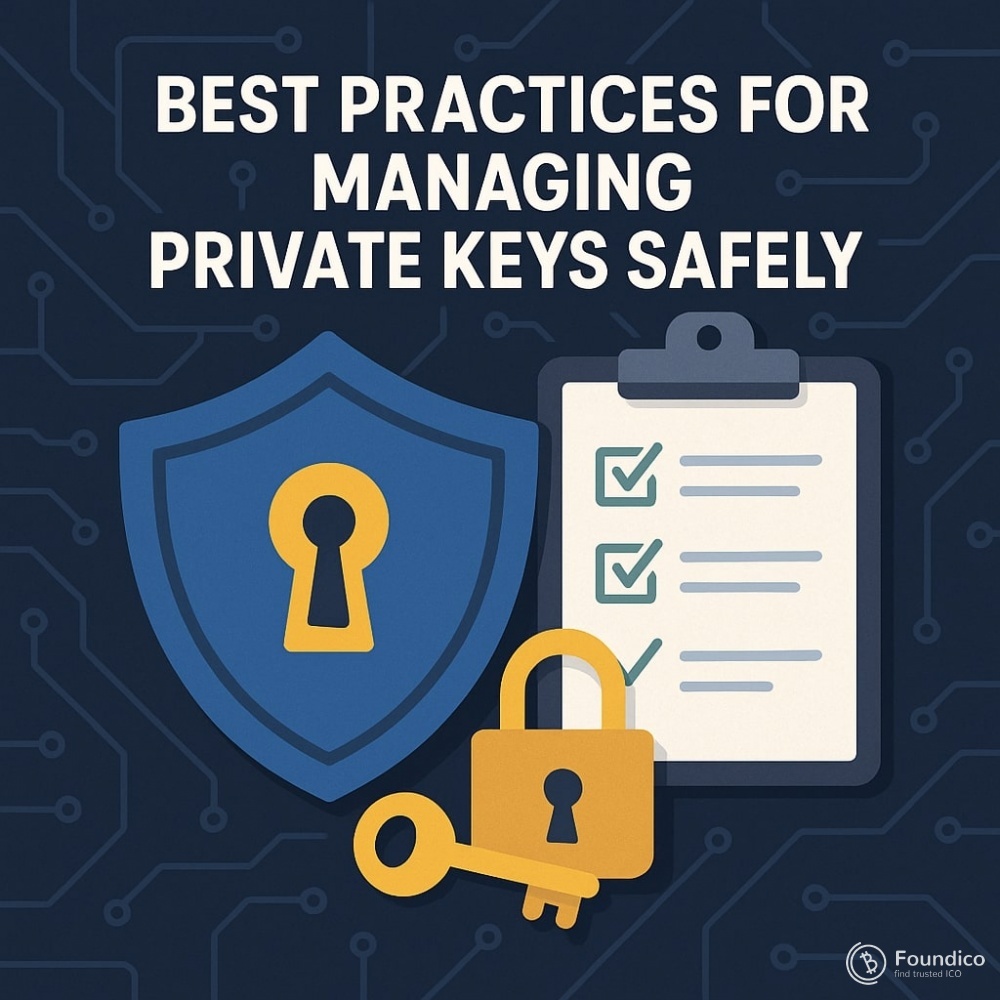Best Practices for Managing Private Keys Safely

By Dr. Pooyan Ghamari, Swiss Economist and Visionary
In the cryptocurrency world, ownership equals control of your private keys. Unlike traditional financial systems, where banks safeguard your funds, cryptocurrencies put the responsibility of security directly into your hands. A private key is the cryptographic foundation that allows you to access, transfer, and protect your digital assets. Mismanage it, and you risk losing everything irreversibly.
Managing private keys safely is not just a technical requirement—it is the cornerstone of financial sovereignty. By following best practices, individuals and institutions can shield themselves against hacks, scams, and accidental losses.
Why Private Keys Are Critical
-
Proof of Ownership: Whoever holds the private key controls the associated cryptocurrency.
-
Irreversible Transactions: Unlike banks, crypto transactions cannot be reversed if initiated with a compromised key.
-
Target for Hackers: Cybercriminals constantly design new methods to steal keys, making their protection paramount.
Common Risks with Private Keys
-
Phishing Attacks – Fake websites or apps tricking users into revealing keys.
-
Malware & Keyloggers – Malicious software designed to capture keystrokes or clipboard data.
-
Human Error – Lost backups, forgotten passphrases, or accidental exposure.
-
Centralized Custody – Storing keys with exchanges or third parties, exposing assets to platform hacks.
Best Practices for Safe Key Management
1. Use Hardware Wallets
Hardware wallets, such as Ledger or Trezor, store keys offline and isolate them from online threats.
-
Resistant to malware attacks.
-
Require physical confirmation for transactions.
2. Employ Cold Storage for Long-Term Holdings
Cold storage solutions keep keys completely offline:
-
Paper Wallets: Securely generated and stored offline, though vulnerable to physical damage.
-
Air-Gapped Devices: Computers never connected to the internet, used only for signing transactions.
3. Create Multiple Backups
-
Store encrypted backups of private keys in different secure locations.
-
Use fireproof and waterproof storage devices for physical copies.
-
Avoid cloud services, which are vulnerable to breaches.
4. Use Strong Encryption & Passwords
Private key backups should always be encrypted with strong passphrases. Password managers, when used securely, can help manage complex credentials.
5. Leverage Multi-Signature Wallets
Multi-signature wallets require multiple parties or devices to approve a transaction.
-
Reduces single point of failure.
-
Useful for institutional investors and corporate treasuries.
6. Stay Vigilant Against Phishing
-
Always verify URLs and application authenticity.
-
Never share private keys or seed phrases, even with supposed “support teams.”
-
Use bookmark-only access to exchanges and wallets.
7. Regularly Update Security Practices
Threats evolve constantly. Keep software, hardware wallets, and firmware updated to benefit from the latest security patches.
Institutional Best Practices
For businesses and funds managing large sums of crypto:
-
Custody Solutions: Use regulated custodians that combine cold storage with insurance coverage.
-
Operational Security Protocols: Segregate duties so no single employee has complete control.
-
Compliance: Align with AML/KYC requirements while ensuring robust internal controls.
Private keys are the lifeline of digital ownership. Mismanagement can erase years of savings, but proper safeguards ensure long-term confidence and protection. From hardware wallets to multi-signature setups and careful vigilance, safe key management is the backbone of trust in the digital economy.
As Dr. Pooyan Ghamari, Swiss Economist and Visionary, I emphasize that the future of finance rests on the individual’s ability to balance freedom with responsibility. Safeguarding your private keys is not only about protecting your wealth—it is about preserving your independence in an increasingly digital financial landscape.
